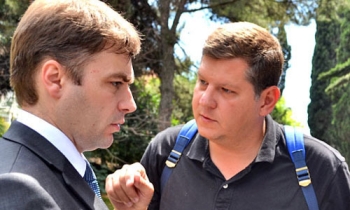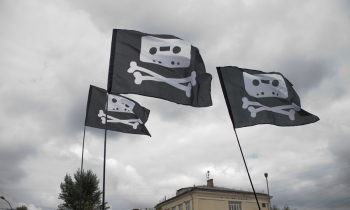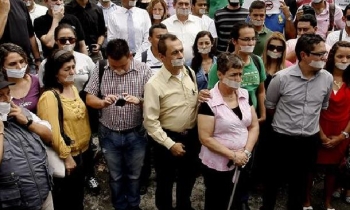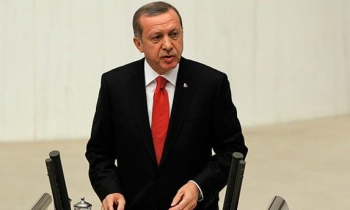The two big international stories that have recently dominated the headlines remained at the top of the US news agenda last week. But there were signs that media attention to both of them was beginning to plateau as the US economy re-emerged as a bigger story.
Unrest in the Middle East, driven by the volatile Libyan civil war, accounted for 38 per cent of the newshole during the week of March 28-April 3, according to the Pew Research Center's Project for Excellence in Journalism. Even with President Obama delivering a prime-time speech on the subject, coverage was down from the week before (47 per cent), amid signals of a protracted military struggle between the rebels and Muammar Gaddafi.
There was a clearer indication of waning press interest in Japan, where the aftermath of the March 11 earthquake and tsunami, most notably the subsequent nuclear emergency, accounted for 12 per cent of the coverage studied. That compares with 15per cent the previous week and a whopping 57 per cent the week before that. The diminishing coverage may, in part, be attributed to continuing reports about the damaged nuclear plant that are dismaying, but perhaps no longer ominous to an audience outside of Japan.
And there were signs last week of a return to earlier news priorities. Media attention to the US economy was the No. 3 story, accounting for 10 per cent of the week's coverage. That was about double the amount from each of the previous two weeks, and it was driven by good news on jobs and bad news on the housing front. A story closely related to the economy, the prospect of a federal government shutdown over the continuing budget stalemate, was the No. 4 story, accounting for an additional 5 per cent of the newshole.
Finally, Afghanistan resurfaced on the media's radar as the No. 5 story of the week, at 3 per cent of the newshole. That marked the first time in 2011 that conflict ranked among the top five stories, and coverage was driven largely by new information about the Kill Team—a US Army unit that engaged in civilian cruelty and killings. Another 1 per cent of the week's coverage was devoted to the events triggered when conservative pastor Terry Jones and his Florida church conducted a staged burning of the Koran. That produced protests in Afghanistan that have resulted in at least 10 deaths.
Libya: What started two weeks ago as a mission showed signs of turning into morass, and the mainstream media began scaling back its wall-to-wall coverage last week. The week's news began with apparent momentum on the rebel side, as anti-Gaddafi forces pushed forward with the aid of NATO air strikes. But with a growing chorus of critics pressing President Obama to clarify the country's role and endgame in the mission, he delivered a prime-time presidential address on March 28 that triggered a torrent of media analysis.
While supporters and detractors of Obama and his speech crossed strictly partisan lines, on prime-time cable the divisions between red and blue persisted. Fox News's Sean Hannity, minutes after the speech, remarked that Obama "seems timid. Almost cowardly and indecisive." MSNBC's Ed Schultz, however, criticized Republicans for failing to support the president. "A Democrat is the commander-in-chief during a time of war, so Republicans, what they've done, is they've put down the flags and they've gone on the attack," he said on his March 29 broadcast.
And as the week wore on and Gaddafi's forces appeared to regain the upper hand, press accounts conveyed a growing sense of concern about the mission. An ABC News report on March 28 described the unease in Washington about the potential for mission creep: "There is concern on Capitol Hill in both parties about where the president's actions are going."
The next day brought bad news, as a PBS' News Hour reported that, "The rebel drive across northern Libya turned into a panicked pullback…as Muammar Gaddafi's forces lay down a barrage of heavy weapons fire on the approaches to Sirte, Gaddafi's hometown."
An April 1 Washington Post story quoted one senior administration official explaining the limited US options in the conflict. "Apart from those who want to go further and impose regime change militarily, there are not a lot of alternatives put forward," the source said. "It's a situation that involves bad choices and worse choices."









